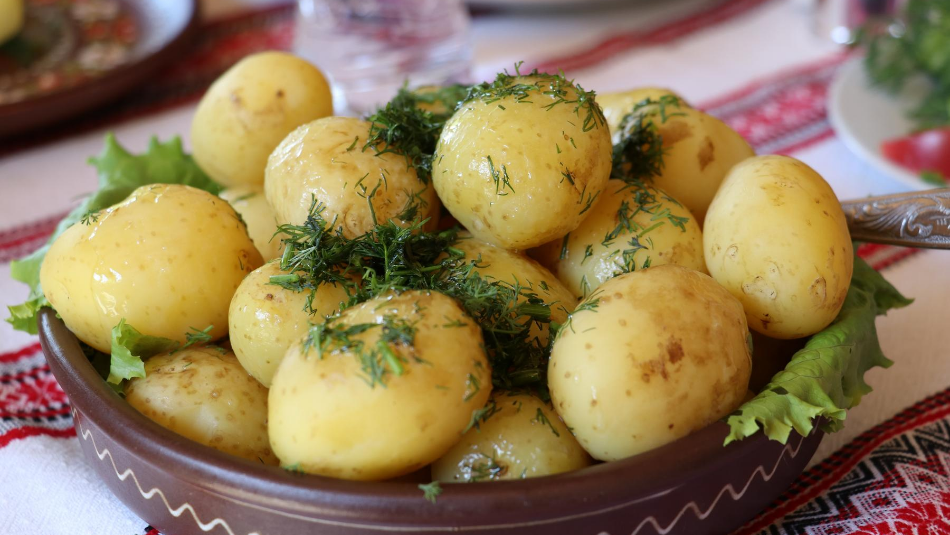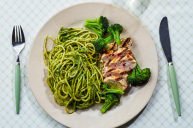When we say "potato diet" your first thought might be what Matt Damon had to do in the movie The Martian to survive being left behind on Mars. Eating potatoes might keep you alive on another planet, but is an all-potato diet actually good for you? The idea of eating nothing but pounds of potatoes as a way to lose weight has been popular in the past, so let's take a look back at this fad diet.
What is the Potato Diet?
It's really simple: nothing but potatoes. Mostly plain potatoes, no oil, typically no spices. There are two versions. The first is a short-term diet, sometimes known as the potato hack, where you eat just potatoes for two or three days. It's supposed to be a kind of reset. The other version of the potato diet plan is a longer-term commitment. Some people will go for a couple of weeks or even months eating only potatoes.
The thing about this meal plan is that it's not all french fries and potato chips. A baked potato works, but no butter, sour cream or bacon. Roasted potatoes are fine, but most versions of the diet are oil-free, so hash browns are out. You can do mashed potatoes, but you mash those spuds with butter or cream.
You can eat any kind of spud: russet, red, new and white potatoes. Some versions of the diet allow for sweet potatoes, as well.
How does the Potato Diet work?
Tim Steele created the diet and wrote about it in The Potato Hack: Weight Loss Simplified. He modeled off of an 1849 diet plan for dyspeptic people. Steele says the potato diet is great for gut health; the high fiber diet creates a diverse intestinal microbiome.
Eating a lot of potatoes for weight loss might sound counter-intuitive, but there is some science there. Normally, you're told to go low carb, which means skipping the starchy potatoes.
But the thing about the potato diet is that any time you eat fewer calories than you burn, that caloric deficit means you're going to lose weight. And when you're only eating one food, you tend to get tired of it, which means you're probably going to fall into a low-calorie diet automatically.
But potatoes also have a high satiety index; the bottom line is that when you eat a potato, you feel full faster. Since you're supposed to eat whenever you feel hungry, and eat until you're full, not feeling hungry means that you're more likely to eat less overall.
Does the diet plan help you lose weight?
According to illusionist Penn Jillette and filmmaker Kevin Smith, dieting this way works brilliantly. Both men experienced weight loss. And when Chris Voigt, who was the executive director of the Washington State Potato Commission in 2013, ate 20 potatoes a day, for 60 days straight to educate the public about the nutritional value of potatoes, he lost 21 pounds. Plus, he reduced his cholesterol and blood sugar levels.
While a balanced diet is better, potatoes are a vegetable. While it's better to eat a mix of veggies, eating only potatoes for a couple of days probably isn't going to hurt, though you should always check with your doctor before you try any kind of restrictive diet. And an all-potato diet for a long time isn't a healthy diet. While potatoes are good for you (as long as you don't fry them, add a bunch of cheese on top, slather them in butter or dip them in sour cream), any nutritionist will tell you that you need more fat, protein, and nutrients than you get just eating spuds.
Watch: The Health Benefits of Bone Broth




